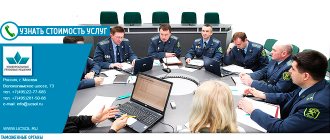Home Customs authorities
Customs authorities are executive authorities whose powers include the implementation of activities in the field of customs affairs in the territory under their jurisdiction. They are subordinate to the highest executive body, in our country it is the Government of the Russian Federation. Customs authorities take part in the development of state policy in the field of customs, rule-making and practical implementation and application of adopted regulations throughout the territory under their jurisdiction. Customs authorities carry out their activities guided by:
- The basic law is the Constitution;
- Customs Code;
- Other laws.
And also guided by:
- Decrees and orders of the head of state;
- Orders and resolutions of the government of the country;
- Regulatory legal acts of executive authorities;
- Regulatory acts of the Central Bank;
- Regulatory and legal acts of the governing bodies of the customs service;
- Ratified international treaties and agreements.
System of customs authorities of the Russian Federation
All units located throughout the country form an integral structure. The functioning system of customs authorities of the Russian Federation is deeply centralized and accountable to the government. It is also integrated to varying degrees with the structures of other states. The most obvious example is the system of customs authorities of the Eurasian Union.
Legal status
Any government structures have functions, tasks and a place in the general management system. The legal status of customs authorities is approved by current legislation. They are seen as part of the law enforcement system.
Structure: divisions, classification, management
General management is carried out by the President and the Government of the Russian Federation. The structure of customs authorities includes the following divisions:
- federal division acting as a center;
- regional departments;
- customs and posts.
The classification of customs authorities is carried out depending on the coverage of the territory in which the activity is carried out. The entire system is part of government law enforcement . Although the general leader is the president and the government, there is a separate head who exercises direct operational management.
The federal center transmits guidelines for ensuring activities that regulate the work of customs departments. All these orders must comply with current legislation. The maintenance management scheme provides for the implementation of instructions by lower-level officials. Feedback is relatively weak.
Operating principles
All government agencies operate with certain provisions in their work. Principles of activity of customs authorities:
- legality;
- respect and observance of rights and freedoms;
- uniformity of control practices;
- equality of all persons before the law;
- the inadmissibility of imposing unjustified costs on participants in foreign trade activities;
- centralized leadership;
- unity of the entire system;
- clarity, transparency and predictability of actions of officials;
- professionalism and competence.
Maintenance codes
A large number of units scattered across the vast territory of the Russian Federation created a request for a system that would effectively recognize different representative offices and identify their affiliation. For this purpose, customs authority codes were introduced.
Example: 10101000, 10102000, 10103000 - this is the designation of the main divisions in the territories of Belgorod, Bryansk and Vladimir regions, respectively. The last three digits are reserved for posts and their territorial branches. For example, current values for December 2021 for the Belgorod region:
- 10101010;
- 10101020;
- 10101030;
- 10101040;
- 10101050;
- 10101070;
- 10101080;
- 10101090;
- 10101100;
Customs posts
One of the links in the customs system is the customs post. He reports to customs, or may report directly to RTS. Individual posts operate under the guidance of the federal service.
The creation and reorganization of a customs post lies on the shoulders of the RTS; if the post has the exclusive status of a legal entity, then it is handled by the FCS. Typically, a customs post does not take this organizational form. But if the Federal Customs Service decides to give a post the status of a legal entity, then it has its own balance sheet, charter, and bank accounts. Such a post may manage property assigned to federal agencies.
The functions of the customs post are to carry out and carry out all customs operations, control over the legality and legality of procedures, and implement adopted resolutions of federal and regional significance.
Functions, goals and objectives
Everything that government representatives must achieve and accomplish is pre-approved by laws, government regulations, and orders of the federal center. Goals of customs authorities:
- collection of duties with subsequent transfer of funds to the budget;
- ensuring control and regulation in accordance with legal requirements;
- promotion of foreign trade.
The assigned tasks of the customs authorities:
- carrying out work related to the collection of payments and their subsequent transfer to the country’s budget;
- state control over compliance with restrictions and prohibitions during the movement of goods across the border;
- planning in the customs authorities must include the development of ways to achieve the set indicators within the framework of the declared tasks (for example, filling the budget);
- influence on foreign economic activity through tariff and non-tariff means.
The functions of customs authorities are most diverse. These include:
- fulfillment of the undertaken international obligations of the Russian Federation;
- maintaining statistics;
- control (according to authority) over foreign exchange transactions;
- checking product labeling;
- prevention, detection and suppression of crimes with offenses;
- carrying out operational investigative activities (within the assigned powers);
- assistance to other law enforcement agencies in the fight against crime;
- anti-corruption;
- ensuring respect for the rights of civilians;
- information support for the movement of goods;
- ensuring compliance with the legitimate interests of civilians;
- fulfillment of performance indicators of customs authorities provided for in the budget;
- cooperation with the tax service.
- Activities in the field of customs: types and goals of activities
Activities in the field of customs are the activities of legal entities related to the provision of services as:
- customs representatives;
- customs carriers;
- owners of temporary storage warehouses (TSW);
- owners of customs warehouses;
- owners of vacant warehouses;
- duty free shop owners.
The main goal of their activity is to make a profit through the provision of intermediary services (customs representatives, customs carriers, owners of temporary storage warehouses and customs warehouses) or the implementation of production and trading activities (owners of free warehouses and duty-free shops).
In addition, such organizations, being part of the customs infrastructure, ensure effective interaction between customs authorities and participants in foreign economic activity through the provision of services on a professional basis.
Activities in the field of customs affairs can only be carried out by organizations included by customs authorities in the relevant register.
To do this, organizations must submit an application to the customs authority and comply with the conditions for inclusion in the relevant register.
In the future, customs authorities will constantly monitor the activities of such persons and in case of violation of their duties, a decision may be made to exclude them from such a register.
Let us consider the features of each type of activity in more detail.
- Activities in the field of customs affairs as a customs representative
A customs representative is an intermediary who, on behalf of the declarant or other persons, carries out customs operations on their behalf in relation to imported or exported goods. That is, he acts as a link between customs and participants in foreign trade activities.
Many organizations resort to the services of customs representatives due to the lack of specialists on their staff who have the necessary skills to fill out declarations (declarations are usually filled out using special software, the installation and maintenance of which are paid) and compliance with all customs formalities, errors in the commission of which can lead to significant financial costs and loss of time.
In addition, the customs representative bears a joint and several obligation with such a declarant to pay customs duties. That is, if the declarant fails to fulfill this obligation, the customs authorities will be able to collect customs payments from the customs representative.
The relationship between the customs representative and foreign economic activity participants is based on a contractual basis.
At the same time, the activities of the customs representative are public, which means that he cannot refuse to conclude an agreement if he has the opportunity to provide a service or perform work, except in cases where the execution of such an agreement will go beyond the scope of activity limited by the customs representative himself, and also if the customs representative believes that the actions of the declarant are illegal.
A customs representative may limit the scope of his activities to customs operations in relation to:
- certain categories of goods;
- goods not subject to export customs duties and placed under the customs export procedure;
- carrying out customs operations in a separate region of activity of the customs authority.
However, in recent years, such intermediary services are provided by organizations and individuals who do not have the status of a customs representative, but fill out a declaration with the electronic digital signature of the represented person.
Sometimes customs representatives do this, not wanting to take responsibility for the organization they represent.
This kind of services is cheaper than the services of a customs representative, however, all responsibility in this case falls entirely on the declarant.
To be included in the register of customs representatives, an organization must fulfill a number of conditions:
1) the existence of an insurance agreement for the risk of civil liability of the customs representative, which may arise as a result of damage to the property of the represented persons or violation of contracts with these persons, in the amount of at least 20,000,000 rubles;
2) ensuring the fulfillment of duties in an amount equivalent to at least 500,000 euros, and for a customs representative whose scope of activity is limited to customs operations in relation to goods not subject to export customs duties and placed under the customs export procedure, in the amount of 5,000,000 rubles. ;
3) the absence of an obligation to pay customs and other payments not fulfilled within the prescribed period;
4) the legal entity is not a state-owned enterprise; an organization or state unitary enterprise under the jurisdiction of the Federal Customs Service of Russia;
5) the legal entity does not have one or more decisions that have entered into force and have not been executed within the prescribed period in cases of administrative offenses, liability for which is provided for in Art. 16.2 Code of Administrative Offenses of the Russian Federation.
- Activities in the field of customs as a customs carrier
A customs carrier carries out activities in the field of customs affairs for the transportation of goods under customs control across the customs territory of the Union.
The basis of its activity is the transportation of goods in accordance with the customs procedure of customs transit, while security for the payment of customs duties is not provided.
Accordingly, there is no need to divert funds from circulation, draw up a surety agreement or a bank guarantee, which significantly saves budget and time.
This exemption from the obligation to provide security for the payment of customs duties constitutes the main competitive advantage of the customs carrier.
However, the services of customs carriers are more expensive than the services of ordinary transport companies.
The relationship between the customs carrier and the sender or forwarder is based on a contractual basis.
At the same time, the carrier cannot refuse to conclude a contract if he has the ability to transport goods, unless he believes that the actions of the sender of the goods are illegal.
To be included in the register of customs carriers, an organization must fulfill a number of conditions:
1) carrying out activities for the transportation of goods for at least 2 years;
2) ensuring the fulfillment of obligations in an amount equivalent to 200,000 euros;
3) availability of a permit to carry out cargo transportation activities;
4) ownership, economic management, operational management or lease of vehicles used for the transportation of goods;
5) the absence on the day of application to the customs authority of the obligation to pay customs and other payments not fulfilled within the established period;
6) absence of facts of bringing to administrative responsibility within one year before the date of application to the customs authority for administrative offenses in the field of customs affairs, provided for by individual articles of the Code of Administrative Offenses of the Russian Federation;
7) the legal entity is not a state-owned enterprise; organization or state unitary enterprise under the jurisdiction of the Federal Customs Service of Russia.
- Activities in the field of customs affairs as the owner of a temporary storage warehouse
The owner of a temporary storage warehouse (TSW) carries out activities in the field of customs affairs for the storage of goods under customs control.
Its main purpose is:
- storage of goods for which all customs formalities have not been completed;
- impossibility of seizure, substitution or use of goods before their release by the customs authority,
- ensuring the possibility of customs control. For this purpose, the temporary storage warehouse is equipped with technical means of customs control, weighing equipment, and loading and unloading equipment.
In essence, this is a transit zone where goods that have not yet passed customs clearance are located.
Temporary storage warehouses are specially equipped structures, premises and open areas. Such warehouses can be open or closed.
Open temporary storage warehouses are available for use by any person, that is, they are established to make a profit by providing services for storing goods of third-party organizations.
Closed temporary storage warehouses are intended for storing goods of the warehouse owner or for storing certain categories of goods, and are usually established for storing goods intended for the own needs of the owner, who carries out foreign economic activity on a regular basis and does not want to pay a third party for the temporary storage of goods.
Storage at a temporary storage warehouse is carried out on a contractual basis for a fee, which is associated with the material interest of the foreign trade participant in the prompt declaration and release of goods.
Owners of temporary storage warehouses cannot refuse to enter into an agreement for the storage of goods of third parties if they have the opportunity to carry out such storage, except in cases where the execution of such an agreement will go beyond the scope of activity limited by the owner of a closed warehouse, or when there are grounds to believe that the actions of the person placing goods in storage are illegal.
Tariffs for temporary storage warehouse services are set by the owner himself; they may vary depending on the region and depend on the storage location (room, open area, freezer), cargo weight, loading and unloading operations, provision of document preparation services and other additional services (weighing , sorting, repackaging, etc.).
The premises and territory of the warehouse are subject to certain requirements for their arrangement and equipment:
1) availability of access roads (depending on the type of transport);
2) the location of premises intended for open-type temporary storage facilities, only in above-ground buildings or structures related to real estate;
3) the presence of an equipped place for customs inspection of goods and vehicles, allowing customs inspection at any time of the year without causing damage to the inspected goods;
4) fencing of the adjacent territory;
5) fencing or marking an open area on the ground;
6) the territory of the temporary storage warehouse should not include objects not related to the operation of the warehouse and ensuring its operation;
7) the presence at the temporary storage warehouse of an equipped and specially adapted room intended for storing goods that may cause harm to other goods or require special storage conditions, for example, a freezer;
 presence of checkpoints;
presence of checkpoints;
9) provision of technical means for customs control of fissile and radioactive materials;
10) availability of inspection X-ray equipment;
11) availability of weighing equipment with different weighing limits;
12) the presence of an automated system for accounting for goods, compatible with software products authorized for use by the customs authority;
13) availability of telephone communications, office equipment and copying equipment;
14) ensuring information interaction between the owner of the temporary storage warehouse and the customs authority through a personal account;
15) availability of loading and unloading equipment (forklifts, electric forklifts and electric vehicles, mechanical trolleys, cranes, lifts and other loading and unloading equipment);
16) The temporary storage warehouse must be located within a continuous perimeter territory;
17) The temporary storage warehouse cannot be located on mobile vehicles or mobile transport equipment of any kind.
To be included in the register of temporary storage warehouse owners, an organization must fulfill a number of conditions:
1) ownership, economic management, operational management or lease of structures, premises (parts of premises) and (or) open areas intended for use as temporary storage facilities and meeting established requirements;
2) the existence of an insurance contract for the risk of civil liability of the owner of the temporary storage warehouse, which may occur as a result of causing damage to the goods of other persons in storage, or violation of other terms of storage agreements with other persons, for the insured amount, which is determined at the rate of 3,500 rubles. for each full and incomplete square meter of usable area and (or) at the rate of 1,000 rubles. for each full and incomplete cubic meter of useful volume, but cannot be less than 2,000,000 rubles. The useful volume and useful area of the temporary storage warehouse are the total volume of the premises or the total area of the open area that the applicant plans to use for storing goods;
3) the absence on the day of application to the customs authority of the obligation to pay customs and other payments not fulfilled within the established period;
4) ensuring the fulfillment of duties in the amount of not less than:
a) 2,500,000 rub. and additionally 300 rub. for each full and incomplete cubic meter of useful volume of the premises, if the premises are used as a temporary storage warehouse, and (or) 1,000 rubles. for each full and partial square meter of usable area, if an open area is used as a temporary storage warehouse - for owners of an open temporary storage warehouse;
b) 2,500,000 rub. — for owners of closed temporary storage warehouses;
5) absence of facts of bringing to administrative responsibility two or more times within one year before the date of application to the customs authority for offenses in the field of customs affairs, provided for by individual articles of the Code of Administrative Offenses of the Russian Federation;
6) being in ownership, economic management, operational management or lease of an adjacent territory equipped for parking vehicles transporting goods for the time necessary to complete the customs procedure of customs transit.
7) registration in your personal account;
 availability of approval from the federal body responsible for the development of the State Border of the Russian Federation, in the case of a temporary storage warehouse located within the checkpoint.
availability of approval from the federal body responsible for the development of the State Border of the Russian Federation, in the case of a temporary storage warehouse located within the checkpoint.
9) the legal entity is not a state-owned enterprise; organization or state unitary enterprise under the jurisdiction of the Federal Customs Service of Russia.
- Activities in the field of customs as the owner of a customs warehouse
The owner of a customs warehouse stores in a customs warehouse goods placed under the customs procedure of a customs warehouse.
That is, the difference between a temporary storage warehouse and a customs warehouse is that goods are stored at a temporary storage warehouse until they are placed under any of the customs procedures, and a customs warehouse stores goods placed under the customs procedure of a customs warehouse.
Customs warehouses are specially equipped structures, premises and open areas. Customs warehouses can be open or closed.
Just like temporary storage warehouses, open-type customs warehouses are available for storing any goods and used by any persons with authority in relation to goods, and closed-type customs warehouses are intended for storing goods of the owner of this customs warehouse.
The point of placing goods in a customs warehouse is that the imported goods can be kept there without paying customs duties until the moment when the recipient of the goods needs it, that is, payments will be paid only before the use of the goods or their subsequent sale. This is especially beneficial in a situation where the importer does not have clear guarantees for the prompt sale of products.
Also, customs warehouses are used by persons selling goods on the basis of a consignment agreement, that is, a commission sale in which the owner of the goods (consignor) transfers the goods to the consignor to the warehouse, which finds a buyer for it and ships the goods.
Placing the goods in a customs warehouse in this case allows you to choose between selling the goods abroad or selling them on the domestic market.
Storage of goods in a customs warehouse is carried out on a contractual basis for a fee, therefore, it is advisable for organizations whose activities involve frequent use of a customs warehouse (for example, consignors or large industrial enterprises) to establish their own customs warehouse.
Owners of customs warehouses cannot refuse to enter into an agreement for the storage of goods of third parties if they have the opportunity to carry out such storage, except in cases where the execution of such an agreement will go beyond the scope of activity limited by the owner of a closed warehouse, or when there are grounds to believe that that the actions of the person placing the goods in storage are illegal.
Customs authorities may at any time carry out customs control over goods located in a customs warehouse, and the warehouse owner must ensure access for officials to such goods and prevent access to them by unauthorized persons.
The premises and open area of the warehouse are subject to certain requirements for their arrangement and equipment:
1) location of an open-type customs warehouse only in buildings or structures related to real estate. A customs warehouse cannot be located on mobile vehicles or mobile transport equipment;
2) availability of access roads (depending on the type of transport);
3) the presence of a loading and unloading area adjacent to the customs warehouse premises;
4) the territory of the customs warehouse must have a fence, a checkpoint and be continuous along the perimeter if an open area is used as a customs warehouse;
5) the territory and premises of the customs warehouse must be designated “Customs Warehouse” in Russian and English;
6) the territory and premises of the customs warehouse should not include objects not related to the functioning of the customs warehouse and ensuring its operation;
7) at the customs warehouse, premises must be allocated, equipped and specially adapted for storing goods that require special storage conditions (if the customs warehouse is supposed to store such goods);
 designation in any way acceptable to the owner of the customs warehouse (barrier tape, partitions, technological passages marked with appropriate signs and inscriptions) of the areas:
designation in any way acceptable to the owner of the customs warehouse (barrier tape, partitions, technological passages marked with appropriate signs and inscriptions) of the areas:
a) for storage until removal from the warehouse of goods in respect of which the customs procedure of the customs warehouse has been completed;
b) for storing goods placed under the customs export procedure;
9) availability of weighing equipment with different weighing limits;
10) availability of telephone and fax communications, duplicating equipment;
11) the presence of an automated system for accounting for goods, compatible with software products used by the customs authority;
12) the presence of an electronic system for placement and accounting of goods (for customs warehouses equipped with an automated cell storage system for goods), compatible with software products used by customs authorities;
13) each storage unit, in order to identify goods stored in a customs warehouse, must be provided with a certificate containing information:
a) about the registration number of the goods declaration;
b) about the weight of goods;
c) the expiration date of storage of goods in the customs warehouse.
To be included in the register of owners of customs warehouses, an organization must fulfill a number of conditions:
1) ownership, economic management, operational management or lease of structures, premises (parts of premises) and (or) open areas intended for use as a customs warehouse and meeting established requirements;
2) the existence of an insurance contract for the risk of civil liability of the owner of an open customs warehouse, which may occur as a result of causing damage to the goods of other persons in storage, or violation of other terms of storage agreements with other persons, for the insured amount, which is determined at the rate of 3,500 rubles. for each full and incomplete square meter of usable area or 1,000 rubles. for each full and incomplete cubic meter of useful volume, but cannot be less than 2,000,000 rubles. The useful volume and usable area of a customs warehouse are the total volume of the premises or the total area of the open area that the applicant plans to use for storing goods;
3) the absence on the day of application to the customs authority of the obligation to pay customs and other payments not fulfilled within the established period;
4) the absence of an unfulfilled obligation to pay an administrative fine for offenses provided for by certain articles of the Code of Administrative Offenses of the Russian Federation;
5) provision of security for the performance of duties in the amount of not less than:
a) 2,500,000 rub. and additionally 300 rub. for each full and incomplete cubic meter of useful volume of the premises, if the premises are used as a customs warehouse, and (or) 1,000 rubles. for each full and partial square meter of usable area, if an open area is used as a customs warehouse - for owners of open customs warehouses;
b) 2,500,000 rubles - for owners of closed customs warehouses;
6) the legal entity is not a state-owned enterprise; an organization or state unitary enterprise under the jurisdiction of the Federal Customs Service of Russia;
7) registration in your personal account.
- Activities in the field of customs as the owner of a free warehouse
The owner of a free warehouse places and uses in a free warehouse goods placed under the customs procedure of a free warehouse, without paying customs duties.
The difference between a free warehouse and a temporary storage warehouse and a customs warehouse is that with goods in a free warehouse, in addition to storage and cargo operations, other operations can be carried out, for example, processing, manufacturing, repair or maintenance of goods, the use of equipment, machines and units for the purpose of goods processing operations.
Owners of free warehouses are large industrial enterprises that organize such warehouse complexes to solve their economic problems, and from the point of view of the interests of the state, they allow increasing the production of goods, creating new jobs and ensuring an influx of foreign investment.
Today, on the territory of the EAEU, free warehouses exist only on the territory of Kazakhstan and are used by manufacturing enterprises, in particular for the production and assembly of vehicles, household appliances, agricultural machinery, building materials, food products, tobacco products, etc.
There are certain requirements for the arrangement and equipment of a free warehouse:
1) availability of access roads (depending on the type of transport);
2) the availability of an equipped place for customs inspection of goods and vehicles;
3) the presence of a fence;
4) presence of a checkpoint;
5) the presence on the outside of the perimeter of the warehouse territory of signs indicating that the territory of the free warehouse is a customs control zone;
6) the presence of equipped and specially adapted premises intended for storing goods that require special storage conditions (if such goods are supposed to be stored in a free warehouse);
7) availability of weighing equipment with different weighing limits;
 availability of video surveillance operating 24 hours a day;
availability of video surveillance operating 24 hours a day;
9) availability of inspection X-ray equipment;
10) availability of telephone and fax communications, office equipment and computer equipment.
To be included in the register of owners of free warehouses, an organization must fulfill a number of conditions:
1) ownership, economic management, operational management or lease of structures, premises (parts of premises) and (or) open areas intended for use as a free warehouse and meeting established requirements;
2) the absence on the day of application to the customs authority of the obligation to pay customs and other payments not fulfilled within the established period;
3) the presence of a system for recording goods that allows comparing the information submitted to the customs authorities when performing customs operations with information on business transactions;
4) provision of security for the performance of duties in the amount of at least 10,000,000 rubles;
5) absence within one year before the date of application to the customs authority of facts of bringing a person to administrative responsibility in accordance with Part 1 of Art. 16.9 of the Code of Administrative Offenses of the Russian Federation and (or) bringing to administrative responsibility two or more times in accordance with certain articles of the Code of Administrative Offenses of the Russian Federation;
6) registration in your personal account;
7) the legal entity is not a state-owned enterprise; organization or state unitary enterprise under the jurisdiction of the Federal Customs Service of Russia.
- Activities in the field of customs as a duty-free shop owner
The owner of a duty-free shop sells goods placed under the customs procedure of duty-free trade without paying customs duties.
Basically, such goods are sold at checkpoints across the state border to persons leaving the country.
In the EAEU, subject to certain conditions, the sale of goods is also allowed:
- to individuals arriving in the customs territory of the Union;
- individuals traveling from one Member State of the Union to another Member State of the Union, and individuals entering one Member State from another Member State;
- diplomatic missions, consular offices, representative offices of states at international organizations, international organizations or their representative offices located in the customs territory of the Union, as well as members of such representative offices (institutions, organizations), members of their families and personnel.
Duty-free shops, more often called duty-free, sell goods at a price that does not include customs duties. However, their prices are not always cheaper than in regular stores. This is due to their monopoly position at the checkpoint and the high cost of rent at airports.
About 70% of purchases there are alcohol and cigarettes, the rest are perfumes and cosmetics.
The world's first duty free store opened in Ireland in 1947 and is still in operation. It was created to serve passengers on flights between Europe and North America whose planes stopped to refuel, and it immediately became popular, with similar stores popping up around the world.
The first duty-free shops in Russia appeared at Moscow Sheremetyevo Airport in 1988.
Duty-free shops consist of sales areas and warehouses, as well as utility rooms.
There are certain requirements for the design, equipment and location of a duty-free store:
1) the territory of a duty-free store should not include objects not related to its operation and ensuring its operation;
2) the warehouse of a duty-free store can only be a premises;
3) the territory of the duty-free store must be located in such a way as to exclude the possibility of goods entering or withdrawing outside of customs control;
4) trading floors of a duty-free store intended for the sale of goods to individuals:
a) those departing from the customs territory of the Union, must be located in such a way as to exclude the possibility of leaving goods purchased at a duty-free store in the customs territory of the Union;
b) arriving at the customs territory of the Union, must be located at air, sea and river checkpoints determined by the Government of the Russian Federation, in such a way as to exclude the possibility of access by persons not arriving at the customs territory of the Union, and also to exclude the possibility of leaving goods, purchased in a duty-free shop in the customs territory of the Union in addition to customs control;
c) for those leaving the Russian Federation for another member state of the Union, must be located in places where goods are moved across the customs border of the Union by air in such a way that the possibility of selling goods to individuals leaving the Russian Federation is excluded;
d) for those entering the Russian Federation from another member state of the Union, must be located in places where goods are moved across the customs border of the Union by air in such a way that the possibility of selling goods to individuals not entering the Russian Federation is excluded;
5) sales areas of duty-free shops for individuals leaving the territory of the Russian Federation must be located outside the place designated for customs control of goods;
6) sales areas of a duty-free store for individuals arriving on the territory of the Russian Federation must be located before the point where individuals cross the entry line (entry) to the “green corridor” or other place, the crossing of which is considered as a statement of the absence of goods subject to customs clearance declaration;
7) warehouses of a duty-free store may be located outside the places where goods are moved across the customs border of the Union, but within the region of activity of the customs authority in which the duty-free store operates, which included the legal entity in the register of owners of duty-free stores;
 Duty-free shop areas must be equipped with a 24-hour video surveillance system.
Duty-free shop areas must be equipped with a 24-hour video surveillance system.
To be included in the register of duty-free shop owners, an organization must fulfill a number of conditions:
1) ownership, economic management, operational management or lease of structures and (or) premises (parts of premises) intended for use as a duty-free store and meeting established requirements;
2) availability of registration or permitting documents for retail trade, if the obligation to obtain them is provided for by law;
3) the absence on the day of application to the customs authority of the obligation to pay customs and other payments not fulfilled within the established period;
4) provision of security for the performance of duties in the amount of RUR 2,500,000;
5) the owner of the duty-free store has no unfulfilled obligation to pay an administrative fine for offenses provided for by certain articles of the Code of Administrative Offenses of the Russian Federation;
6) the legal entity is not a state-owned enterprise; an organization or state unitary enterprise under the jurisdiction of the Federal Customs Service of Russia;
7) registration in your personal account.
At the same time, before a person is included in the register, the opening of a duty-free store must be agreed with the border authorities.
Additional material on the topic in the section
Customs law
Video on the topic:
Law enforcement
As representatives of the security bloc, TOs have to regularly counteract illegal activities. This aspect of their activities is clearly regulated by law.
According to it, law enforcement activities of customs authorities are characterized by the following:
- A clear legal basis. The relevant law “On Service in the Customs Authorities of the Russian Federation” in Article No. 1 directly provides for the law enforcement activities of the Customs Service.
- It is one of the main ones, but is not the only area of activity (unlike other law enforcement agencies).
- It has a clearly defined fiscal connotation.
In practice, law enforcement activities of the Russian Defense Forces include:
- opposition to offenses and crimes;
- ensuring one’s own safety (safety of health and life of officials, combating corruption);
- protection of the customs border of the Russian Federation, administrative buildings;
- monitoring compliance with the law;
- supervision and support.
Operational search activities
When identifying traces of offenses and crimes, it is not always possible to solve them “hot on the trail.” Operational investigative activities (OLAs) of customs authorities help to achieve compliance with laws. It is carried out with the aim of ensuring the interests of society and the state, as well as preserving their property. Often activities are carried out with the aim of protecting the rights, freedoms, health and life of the individual.
The conducted operational investigation is based on legality, respect for human and civil rights, a combination of public and secret approaches, as well as conspiracy. Inquiry by customs authorities is fundamentally not much different from similar processes among other representatives of the security bloc. The main feature is the focus on the target area. Otherwise, it is permitted to begin operational-search activities in compliance with the requirements for the standard police procedure:
- Operational investigations are carried out when a criminal case is initiated;
- if there is information about violations, crimes or persons hiding;
- an order from an investigator, prosecutor or a court decision was received;
- there is a request from international law enforcement organizations.
Powers of officials and employees: their rights and responsibilities
People are the basis of any activity. The rights and responsibilities of the TO are outlined based on the goals set, as well as the tasks and functions performed. Employees involved in the work are required to strictly comply with them. Customs officials are instructed to:
- review the accompanying documentation;
- receive, in the prescribed manner, all the necessary information on which the performance of their duties depends;
- make decisions related to assigned activities;
- conduct investigations;
- Customs officials are required to monitor compliance with laws;
- maintain the required level of qualifications;
- keep state secrets.
The powers of customs authorities and their representatives are supplemented by a number of benefits. They act as incentives for employees. Rights of maintenance facilities and persons working in them:
- creating conditions for the performance of assigned functions and tasks;
- receipt of social security by all customs officers;
- pension payment;
- career advancement.
RTU structure
The hierarchy of the RTU is similar to the organizational structure of the Federal Customs Service of Russia. There is also a chief who is appointed only by the Chairman of the central office. His deputies and the chief accountant are also appointed and dismissed upon submission of information from the regional chief. Personnel changes at other levels are carried out by resolution of the chief, based on the regulations on customs services. The tasks of the head of the RTU are to manage the regional unit on the principles of sole authority, to monitor compliance and implementation of all assigned tasks.
The head interacts with the central customs authority, submitting a report on the work done, and monitors operational investigative activities. On the financial side, the head of the RTU is responsible for the distribution of budget funds allocated to the FCS and provides justification for their intended use.
The chief has deputies who perform approximately the same role as the deputy heads of the Federal Customs Service, but at the regional level.
Review of the Federal Law “On Service in Customs Authorities”
The Law “On Service in Customs Authorities” regulates the work in general terms and contains the basics of the legal status of officials. It considers the following aspects of activity:
- How does the service in the Russian Defense Ministry work?
- system of ranks, their assignment;
- the procedure for entering the service and its further passage;
- working conditions;
- all other personnel issues must be resolved based on the provisions of the Federal Law “On Service in Customs Authorities.”
The document provides a clear answer to a number of questions, including:
- maximum period of service;
- admission restrictions;
- Contract;
- oath;
- guarantees;
- Preparation.
Each employee is obliged to know the contents of the law “On Service in Customs Authorities”: this is in his interests.







